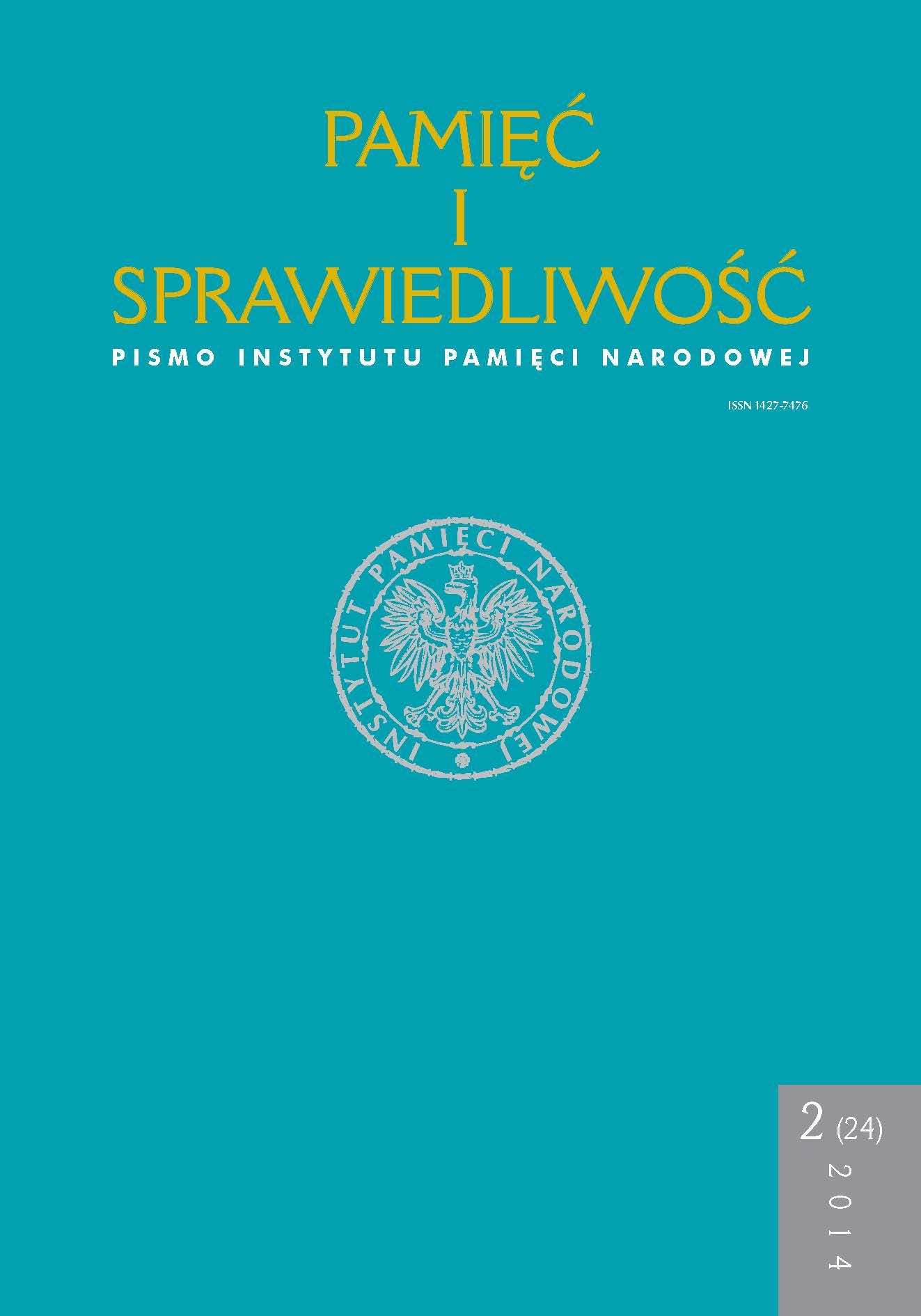The Power Struggle within the Polish United Workers’ Party in 1981 in the East German Government and Party Archives
Remembrance and Justice, Vol. 24 No. 2 (2014), pages: 321-340
Publication date: 2014-12-30
Abstract
The August Agreement of 1980 and the creation of free trade unions in Poland caused
anxiety among leaders of the Socialist Unity Party of Germany (SED). The development
in the neighbouring People’s Republic of Poland had significant impact on the
geopolitical environment of the communist German Democratic Republic. The leader of the SED
and the GDR head of state, Erich Honecker, strongly supported the idea of a Warsaw Pact
invasion of Poland. However, other East European communist rulers were not willing to
go that far, at least in the short term.
Under these circumstances, East German authorities tried to influence the leaders of the
Polish United Worker’s Party (PZPR), Poland’s ruling communist party, and urged them to
impose countrywide martial law. They pinned their hopes on general Wojciech Jaruzelski,
who was designated prime minister in February 1981. However, Honecker soon became
disappointed and came to the conclusion that new leadership in Poland was necessary.
At that time, SED apparatchiks and East German diplomats held many talks with
their PZPR colleagues, including local leaders, members of the Central Committee and
even the Political Bureau. Following on from this, those among the Polish communists
unhappy with the hesitant policy of their leader Stanisław Kania were encouraged to seek
for a new leadership. Honecker hoped that, at its eleventh plenary session in June 1981,
the PZPR Central Committee would overthrow Kania and bring about political change
in Poland. This calculation failed and in July, Kania was even re-elected party leader at
the ninth PZPR congress.
No change in the politics of Poland seemed possible without Jaruzelski, the head of the
army and still a popular figure. In the early Autumn of 1981, GDR authorities received
hints that Jaruzelski no longer supported Kania and had become more willing to impose
martial law. Kania’s opponents among the Central Committee, strongly supported by the
SED and the Soviets, finally managed to oust him from power in October 1981.
The Committee appointed Jaruzelski its new First Secretary. Less than two months later, martial
law was imposed in Poland. From Honecker’s perspective, his minimum goal was reached.
Most read articles by the same author(s)
- Filip Gańczak, The Catholic Church in the Polish People’s Republic in 1980–1981 According to the Documents of the Authorities of the German Democratic Republic , Remembrance and Justice: Vol. 37 No. 1 (2021)
- Filip Gańczak, The Stasi agentry within the People’s Republic of Poland during early Solidarity. Introduction to the discussion , Remembrance and Justice: Vol. 30 No. 2 (2017)
- Filip Gańczak, Bezdroża stanu wojennego. Rozmowa Jerzego Urbana z dyplomatą wschodnioniemieckim w maju 1982 roku , Remembrance and Justice: Vol. 31 No. 1 (2018)
 Język Polski
Język Polski
 English
English
 Deutsch
Deutsch
 Français (France)
Français (France)
 Italiano
Italiano
 Русский
Русский


 PDF (Język Polski)
PDF (Język Polski)
